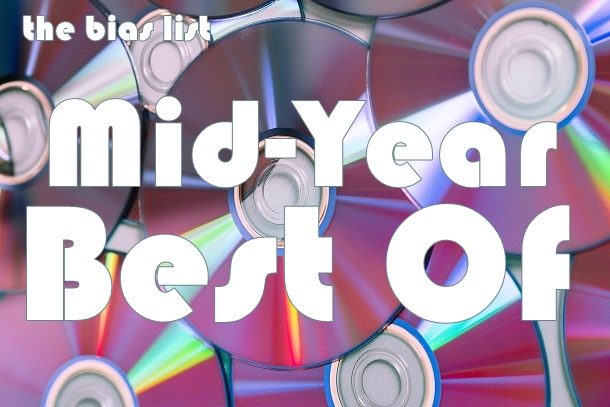‘Las Mujeres Ya No Lloran’: Shakira Triumphs Over a Breakup With Bangers (Album Review)

Shakira, la mujer que tú eres.
While you’ve been busy booking flights to Barranquilla for the pilgrimage to worship at the feet of her nearly 21-foot tall statue, the Colombian icon released her 12th studio album at long last on Friday (March 22), the first in seven years since 2017’s El Dorado, called Las Mujeres Ya No Lloran. (Do you see what she did there? It’s a line from her record-breaking diss track aimed at her ex.)
It’s no secret that Shakira’s life looks a lot different these days: she’s a single mother now following a widely publicized split, a move from Barcelona to Miami with her children, and a settlement after a long, headline-making seven year battle over her taxes. In the time between her last album and now, she’s co-headlined the Super Bowl, won some major awards, and released a ton of collaborative songs with superstars – but there was no real glue to tie together the past seven years of her career. Until now.
Las Mujeres Ya No Lloran is something of a hybrid: it’s essentially half new EP, half latter career-era greatest hits, containing a bulk of the collaborative singles she’s released over the past two years, from “Te Felicito” with Rauw Alejandro to Highest-charting Spanish-language track on the Billboard Hot 100 Guinness World Record-breaking “TQG” with Karol G, to her emotional love letter to her kids “Acróstico” featuring her sons Milan and Sasha, “El Jefe” with Fuerza Regida.
Some might call that it a copout to lump the past few years’ releases together and tack on a few new tracks, but frankly, it’s just good business. Those smashes all deserve to have a home on one album, anyway. And, perhaps more meaningfully, all of the collaborations with musical friends and family represent her journey to finding herself, personally and sonically, once again.

The album’s new offerings are a solid stretch from start to finish, providing a mixture of radio-friendly, trendier offerings and classic Shakira sounds alike.
“Puntería” with Cardi B kicks off the collection, simultaneously becoming the album’s latest single. The synth-y, bouncy ode to a lover who has good aim (ahem) finds well-documented fangirl Cardi happily flexing her bilingual chops on fun and breezy verses as Shaki swoons and croons her way through, sounding hornier than ever: “Siempre llegas fijo / Hasta mi punto G” – or “You always arrive at my G spot,” basically. (I did clutch mis pechos pequeños when I first realized what she was saying.) The similarly flirty “Cohete,” a re-team with “Te Felicito” partner Rauw Alejandro, sees the duo floating across a danceable pulse that would float comfortably alongside dreamy cuts like Doja Cat and SZA‘s “Kiss Me More” and another standout of 2024, Kali Uchis and Peso Pluma‘s “Igual Que un Ángel.”
Las Mujeres shuffles constantly through genres, as Shakira demonstrates her versatility and ability to tap into trends throughout: La Loba’s love’s gone cold on “(Entre Paréntesis)” with Grupo Frontera, a regional Mexican offering that tackles the sound that’s taken over radio in recent months, as popularized by Peso Pluma and further explored by many pop girls, including Belinda and Becky G. The seductive “Nassau,” on the other hand, provides a hint of new love on the horizon across a chill, Afrobeat-inspired shuffle.
Bizzarap, meanwhile, makes a strong case for entirely producing her next record with “La Fuerte,” a follow-up to their globally dominating collaboration, “Bzrp Music Sessions, Vol. 53.” This one’s far less, erm, pointed (“Clara…mente…”), but just as strong of a pairing, providing the album’s most EDM festival-ready moments, and one of Shakira’s best full-on dance floor bangers in a while. (Tiesto‘s remix of their music sessions, also tacked onto the record, also supplies a sweaty dance floor serve.)
But some of the new songs sound old…in the best way: “Tiempo Sin Verte” is a stunning return to form, and a reminder of who she truly is: the track transports us back to the ’90s pop-rock oriented, guitar-driven roots of Shakira’s career, circa Pies Descalzos, while the beat also recalls one of her best, “Las de la intuición.” It’s an instant Shakira classic upon the very first play: those signature quivering vocals as she lingers on the memories of a former flame, the instant earworm melodies, and most of all, that bridge. That bridge! “En mis sueños sigo imaginando queeeeeeee / Aún veo el sol brillando en tu pieeeeeeel.” That yearning, those yelps, almost Sade-like in delivery, are the cherry on top of an already perfectly constructed pop song, and proof that bridges in pop music matter. This is exactly why the two minute pop song just doesn’t hit the same. This is a perfect pop song, and Shakira at her best.
And she doesn’t stop there with the throwback vibes: “Cómo Dónde y Cuándo” sees the singer diving even deeper into rock chick mode and stoically moving forward while declaring “life’s a bitch,” throwing two middle fingers up to the fuckery of the past while still sonically tapping into something from her angsty earlier years, circa Dónde Están los Ladrones? and Laundry Service. It feels absolutely correct to hear her sounding like this again, and remembering exactly who she is.
Shakira leaves it all on the floor with the final, heartbreakingly vulnerable “Última,” a desperate plea after hitting the wall (“La Pared,” if you will) halfway into a romance and asking the impossibly difficult questions across a simple piano melody – “¿Cómo es que te cansaste de algo tan genuino?“, or “How is it you got tired of something so genuine?”) Aside from the previously released “Monotonía” with Ozuna, it’s one of the very few moments she allows herself to get truly sad about the split on a record otherwise filled with dust-yourself-off empowerment anthems, razor-sharp kiss-offs and wink-winks aimed at new flings.
That’s sort of the genius of the long game of Las Mujeres Ya No Lloran, a record that finds a global icon rebuilding in real time.
Slowly but surely formed over these past few years, the album feels appropriately scattered for a turbulent time in Shakira’s life, bouncing wildly between past and present sounds, genres, collaborators. There’s joyous, uplifting moments of fun and flirtiness, gratitude for her loved ones, bitter anger, self-empowerment and defiant shade and, on rare occasion, total devastation.
Shakira may not have totally figured out where to land sonically in 2024 amid all of her personal life drama, but there’s an unwavering strength that ties the whole project together as rolls with the punches and provides the quality songcraft we’ve come to expect of the veteran superstar. And she may be crying on the album’s cover, but those are diamond tears.
Even at her lowest, she’s still incapable of putting out anything less than gems. Las mujeres ya no lloran, las mujeres facturan.
Buy Las Mujeres Ya No Lloran on vinyl.
Check out the MuuTunes Spotify playlist. You can also subscribe on Apple Music.
Photo credit: Jaume De Laiguana & Nicolas Gerardin
This site contains product affiliate links. I may receive a commission if you make a purchase after clicking on one of these links.
Original ArticleTop Categories
Recent News
Daily Newsletter
Get all the top stories from Blogs to keep track.




